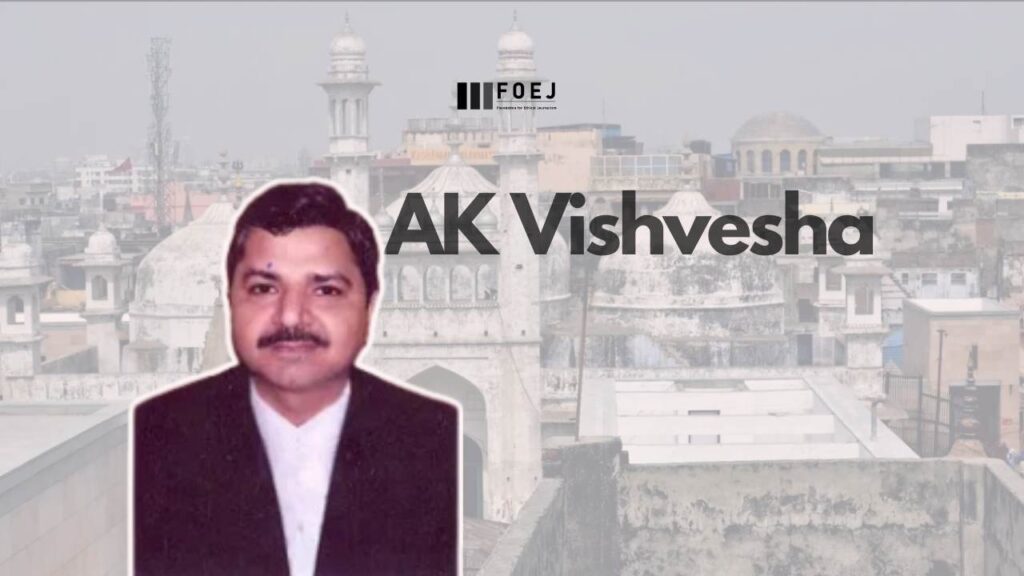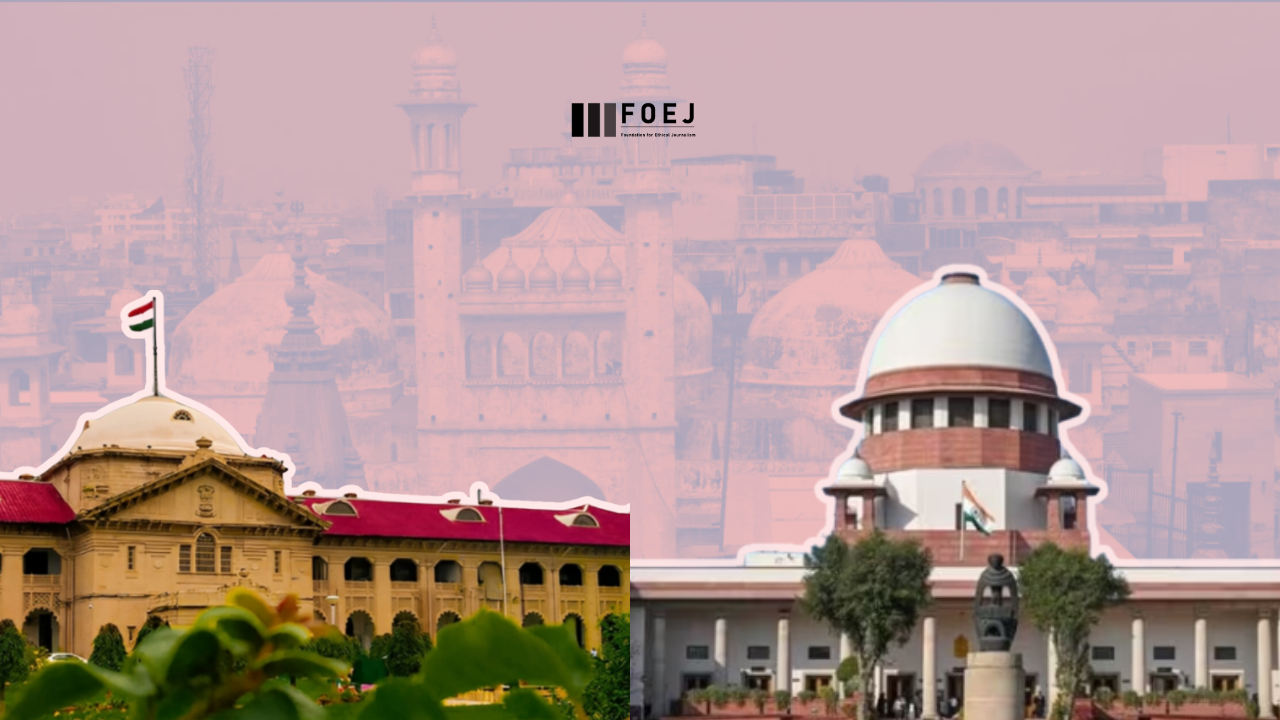The Supreme Court of India agreed to hear the plea from the Gyanvapi mosque committee against the Allahabad High Court’s decision, which deemed the suit for the restoration of the temple as maintainable. Chief Justice D.Y. Chandrachud, along with Justices J.B. Pardiwala and Manoj Misra, stated that they would connect this matter with the main case.
The plea in the Supreme Court was filed by the Anjuman Intezamia Masjid, the committee managing the Gyanvapi mosque’s affairs. On December 19 of the previous year, the Allahabad High Court rejected challenges to the maintainability of a 1991 suit aiming for the’restoration’ of a temple at the location of the Gyanvapi mosque. The High Court emphasized that the determination of the ‘religious character’ of a contested site falls under the court’s jurisdiction. It dismissed five associated petitions concerning maintainability and opposition to a survey of the mosque premises, filed over the years by the mosque committee and the Uttar Pradesh Sunni Central Waqf Board.

The High Court concluded that the suit filed before the district court is not prohibited by the Places of Worship (Special Provisions) Act, 1991, which prohibits altering the ‘religious character’ of a place from what it was on August 15, 1947.
The petitioners had initiated the suit seeking the right to worship in the Gyanvapi mosque adjacent to the Kashi Vishwanath temple. Muslim litigants challenged its maintainability, citing the Places of Worship (Special Provisions) Act. On January 31, the Varanasi district court ruled that a priest could conduct prayers before the idols in the southern cellar of the Gyanvapi mosque.
The mosque committee contested the verdict in court and also filed a petition in the Allahabad High Court against the district court’s decision. Advocate Prabhash Pandey remarked after the court’s ruling that the judge dismissed the pleas filed by the Muslim side against the District Judge’s order, implying that the worship would continue as it was. He labeled the court’s decision as a’significant victory of Sanatana Dharma’ and suggested that the Muslim side could seek a review of the decision, emphasizing that the worship would persist.
Judge who permitted Puja to be appointed as the Lokpal at a university
Meanwhile, Dr. AK Vishvesha, who, on his final day in office, granted permission for Hindu devotees to conduct prayers and ceremonies in the southern cellar of the Gyanvapi Mosque, has been appointed as the Lokpal of Dr. Shakuntala Misra National Rehabilitation University in Lucknow. This institution, established by the Uttar Pradesh government, will now benefit from his expertise, as reported by Dainik Bhaskar.

His appointment aligns with the norms set by the University Grants Commission (UGC), which mandate the appointment of an ombudsperson to address student grievances. According to the UGC guidelines, the Lokpal can be a retired vice chancellor, professor, or district judge.
In his ruling issued on January 31st, Judge Vishvesha stipulated that appropriate arrangements must be made within the southern cellar of the mosque, with the puja to be conducted by a priest designated by the Kashi Vishwanath Trust Board.
This ruling was made in response to a petition filed by Hindu plaintiffs seeking the right to worship in the basement area of the disputed land where the Gyanvapi Mosque is situated.”









